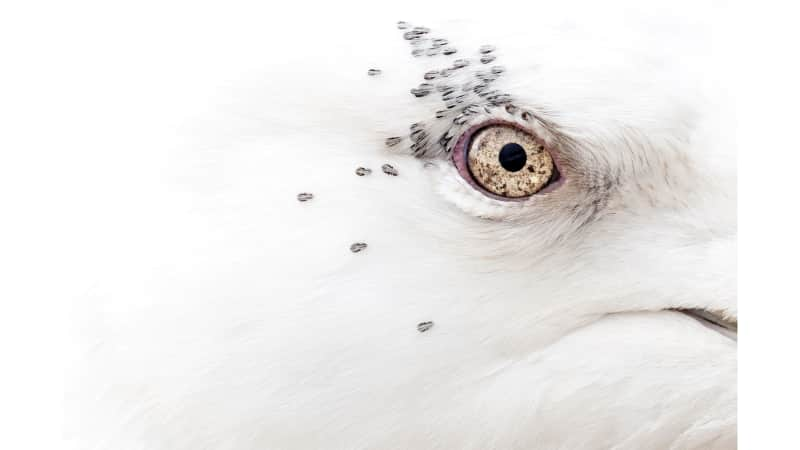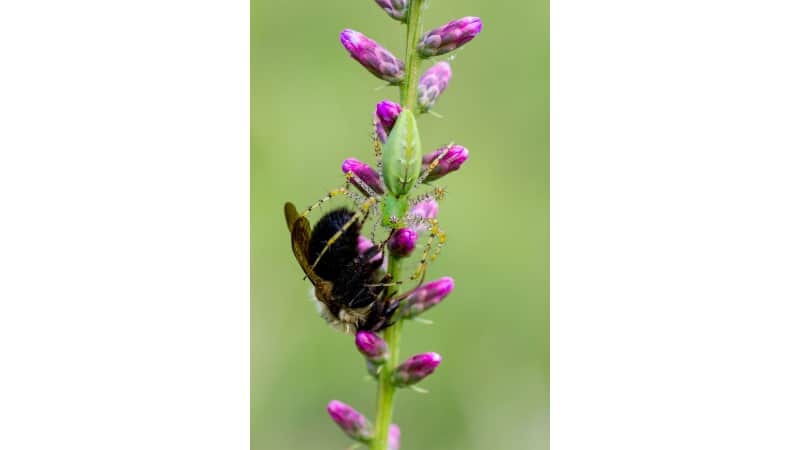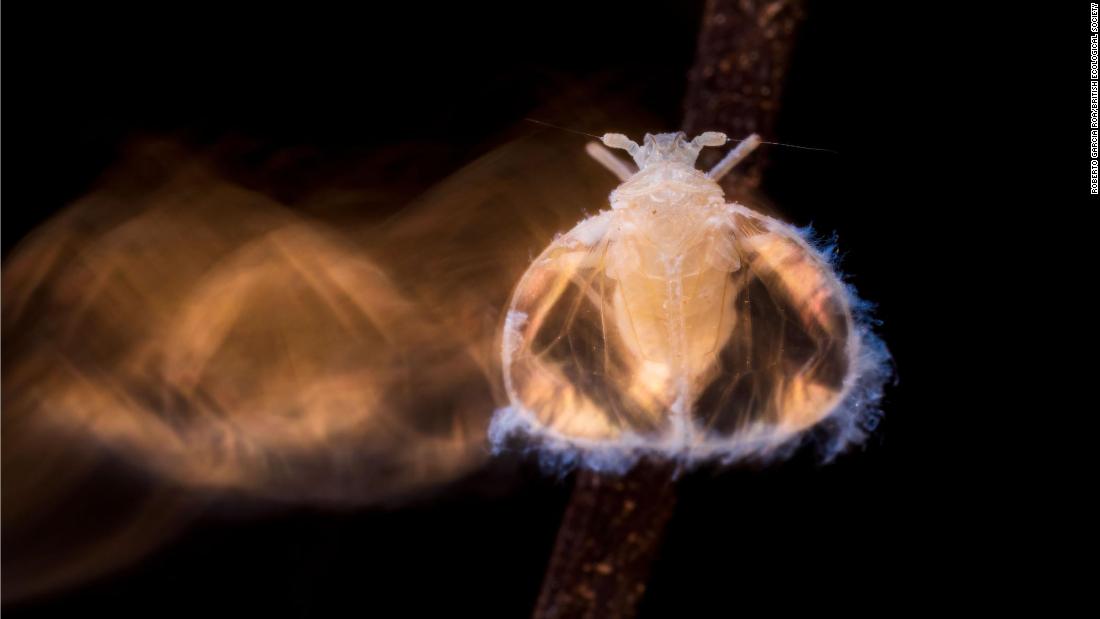Category winners include an image of moss set against the sunset, a close-up of a blowfly and a jumping spider with a freshly caught butterfly, according to a news release from the British Ecological Society.
The overall winning image of a Kumlien’s gull’s eye was taken by Rebecca Nason, who is based in Lerwick, on the island of Shetland, off the coast of Scotland.
Nason described how she saw the rare Kumlien’s gull as she was feeding herring gulls some bread.

Rebecca Nason won the overall competition with this photo of a Kumlien’s gull.
Rebecca Nason/British Ecological Society
“I started photographing the eye detail, noting a gorgeous granite coloured iris with dark speckled plumage detail around the eye,” said Nason in a news release. “It was only when I got home I realised that the speckled patterns were in fact lice clustered around the eye, the Kumlien’s gull hadn’t travelled alone.”
Jane Memmott, president of the British Ecological Society, praised the standard of entries in the competition.
“The winner is a beautifully composed photograph of a gull’s eye — it’s visually arresting, pin sharp and very beautiful, hitchhiking lice included,” said Memmott in the release.
A judging panel, which included six photographers, selected winning images from six categories, as well as another eight highly commended images.
The photos include images of a red snail feeding on a fungus in India, a recently discovered bug that lives in caves in Spain, and a green lynx spider with a bumblebee it has just caught.
“Green lynx spiders are majestic yet voracious predators,” said photographer Dani Davis, who won the overall student prize for the image. “With a quick bite, the lynx can subdue their cumbersome prey and feast in peace.”

Dani Davis captured the moment a green lynx spider caught a bumblebee.
Dani Davis/British Ecological Society
Laura Dyer, a South African wildlife photographer who was part of the judging panel, said the winning photos showcase completely different styles of photography, and hailed the impact of the competition on conservation efforts.
“Wildlife and nature photography is so vital today, as it helps to showcase parts of the natural world which would otherwise remain hidden from the view of most of us,” Dyer said.
“And it is only by seeing the beauty of nature that we will be inspired to protect and conserve it.”
A virtual collection showcasing the images is available at the British Ecological Society website.
